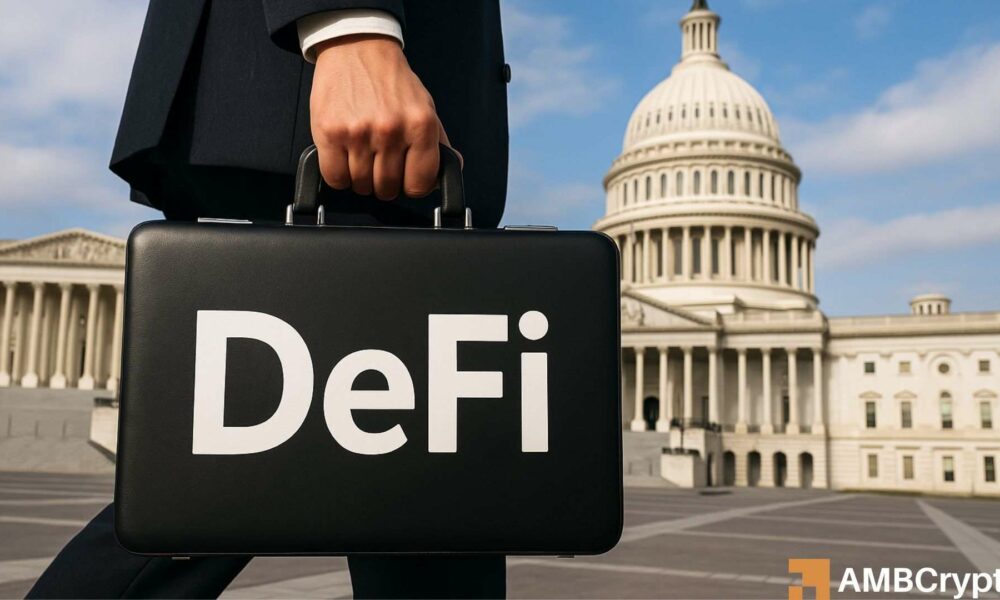The Push for Developer Protections in U.S. DeFi Legislation
In the rapidly evolving landscape of decentralized finance (DeFi), stakeholders are increasingly emphasizing the need for robust protections for developers within upcoming market structure legislation. A recent request by a coalition of 115 DeFi community members, spearheaded by the DeFi Education Fund (DEF), has sent a clear message to Congress: without assurances for neutral developers, the support for the proposed bill may vanish. The DeFi community is particularly concerned about potential liabilities akin to those faced by individuals linked with Tornado Cash, setting the stage for a crucial debate on the regulation of the crypto sector.
The Call for Protections
In a letter addressed to the Senate, the coalition urged lawmakers to provide "nationwide protections for software developers and non-custodial providers." Their message is unequivocal: they will not back the market structure bill unless it includes these critical protections. The group highlighted a concerning trend, noting a 7% decline in U.S. developers over the past four years, a change that many attribute to an atmosphere of regulatory uncertainty. The share of open-source software developers in the U.S. plummeted from 25% in 2021 to just 18% in 2025, a statistic that underscores the urgent need for clarity and safeguards to foster innovation.
The Implications of Regulatory Uncertainty
The current trajectory could hinder the ambitions of leaders aiming to position the U.S. as the global crypto capital. The sentiment shared by the DEF coalition is echoed by numerous legal experts in the crypto space. Jake Chervinsky, the chief legal officer at crypto VC Variant Fund, has stressed the significance of creating a framework that shields developers from the harsh regulatory climate of the previous administration. His assertion is clear: without developer protections, the bill would struggle to gain traction.
Amanda Tuminelli, DEF’s Executive Director and legal chief, further emphasized the importance of properly categorizing developers, arguing against the misclassification of tech innovators as traditional financial intermediaries. The challenge presented to Congress is significant, as it must navigate varied interests, including those of established financial institutions fearful of the rapid rise of DeFi.
The Balancing Act for Congress
As lawmakers prepare to discuss the market structure legislation, they face the daunting task of balancing the requests of the DeFi community against the apprehensions of traditional financial sectors. The banking industry, for instance, has expressed significant concern over the interest accrued on payment stablecoins, viewing it as a direct threat to their traditional operations. Additionally, traditional stock exchanges are wary of tokenization practices in the equities market and are advocating for stringent regulations on on-chain stock issuers. This conflicting landscape places increased pressure on Congress to address these competing interests while still striving to create a favorable environment for crypto innovation.
The Expanding Influence of the Crypto Lobby
As the debate intensifies over the upcoming legislation, the broader crypto lobby has been amplifying its efforts, especially in light of the approaching 2026 midterm elections. This escalation places anti-crypto lawmakers in a precarious position, as they must navigate between supporting traditional financial institutions and recognizing the growing influence and potential of the crypto sector.
Meanwhile, discussions around the market structure legislation are set to reconvene in September, with key developments anticipated from the Senate Agriculture Committee, which oversees the Commodity Futures Trading Commission (CFTC). The impending draft release promises to clarify the regulatory environment, potentially resolving legislative conflicts between the Securities and Exchange Commission (SEC) and the CFTC, thereby streamlining oversight for the digital asset sector.
Optimism Mixed with Caution
While sentiment remains cautiously optimistic regarding the passage of the legislation by year-end, various stakeholders express reservations about potential delays extending the timeline into the next year. The resolution of jurisdictional disputes between the SEC and CFTC could lay the groundwork for a more effective regulatory framework, but uncertainty still looms. The ongoing dialogue surrounding developer protections has become a focal point, with stakeholders urging Congress to act decisively in establishing a regulatory landscape that fosters innovation while addressing legitimate concerns from traditional finance.
The outcome of these discussions will undoubtedly shape the future of the DeFi landscape in the U.S., directing the course for developers, investors, and regulators alike. As the market structure bill approaches its critical juncture, the voices advocating for developer protections serve as a reminder of the need for a balanced approach that fosters innovation while ensuring wide-ranging protections in this dynamic space.


